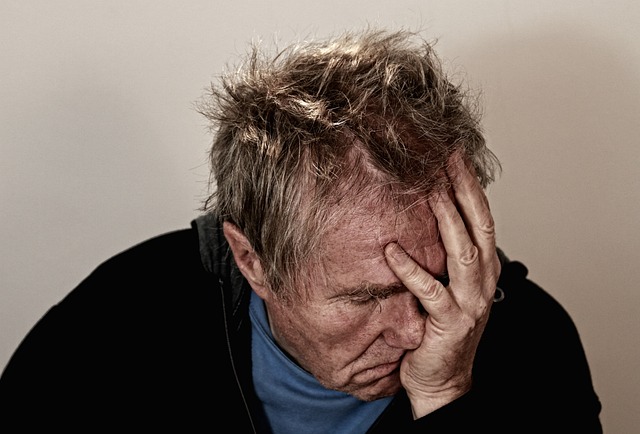20+ Years Experience
Specialist Private Alcohol Rehab

In a world where mental health is becoming increasingly important, the connection between depression and addiction is a crucial topic that often goes overlooked.
Addressing the complex relationship between these two conditions can provide valuable insights into effective treatment and prevention strategies.
In this blog post, we will explore the link between depression and addiction, identify their signs and symptoms, discuss risk factors, present available treatment options, and provide tips for coping with both conditions.
Empower yourself with knowledge and take control of your mental health journey.
The connection between addiction and depression is a complex and often misunderstood aspect of mental health.
Individuals may utilise substances to manage depressive symptoms, resulting in a pattern of deteriorating mental health and substance misuse, which can lead to mental disorders.
Major depressive disorder, depressed mood, bipolar disorder, and anxiety disorders have been noted to co-occur with a drug or alcohol problem, which can lead to mental illness.
It appears that both conditions, depression and substance abuse, may be related to similar brain chemicals and pathways, as well as factors such as familial history and prior trauma, which can contribute to mental health disorders.
Early intervention and treatment heavily depend on the recognition of risk factors associated with the co-existence of depression and substance abuse.
Potential risk factors for dual diagnosis include genetic factors, environmental factors, and imbalances in brain chemistry, as identified by the Mental Health Services Administration.
If you are looking to treat depression, mental disorders and addiction, we recommend:
These options can be beneficial in addressing both mental illness and substance use disorder.
The cycle of depression and substance abuse involves:
Developing effective substance abuse treatment strategies requires a thorough understanding of the cycle of depression and substance abuse.
By addressing the underlying causes of depression while simultaneously treating substance abuse, individuals can break free from this vicious cycle and reclaim control over their lives.
Early intervention and a comprehensive approach to treatment are essential in tackling the complexities of dual diagnosis.
According to the National Institute on Drug Abuse, alcohol, opioids, and stimulants are frequently abused by individuals with depression.
Individuals with depression, which is a mood disorder, may abuse substances in an effort to temporarily ameliorate their symptoms; however, in the long term, this can exacerbate their mental health.
Misusing substances like alcohol and drugs can result in physical and psychological dependence, as well as a heightened risk of overdose and other abuse and mental health issues.
Beneficial strategies for individuals dealing with depression and addiction, supported by mental health services, include implementing self-care practices, creating a support system, and avoiding potential triggers alongside relapse prevention.
By understanding the substances commonly abused by individuals with depression, we can develop targeted strategies to help people break free from the cycle of depression and substance abuse.
Prompt intervention and treatment hinge on the recognition of signs and symptoms of depression and addiction, as defined in the Diagnostic and Statistical Manual of Mental Disorders (DSM)., as warning signs may manifest in changes in mood, behaviour, and physical health.
Identifying these warning signs can help individuals seek help and develop effective treatment plans to address both depression and alcohol or drug abuse.
In the following sections, we will delve deeper into the specific warning signs of depression and substance abuse, providing useful information for early detection and intervention.
Indicators of depression may include:
Frequent feelings of sadness, disinterest in activities, and alterations in sleep and eating habits are often associated with depression, a common type of mood disorder.
Depressive symptoms may lead to a decrease in energy levels, fatigue, and a lack of motivation, making it difficult to rise in the morning.
Depressive symptoms typically do not respond to well-meaning attempts at assistance, such as trying to uplift a friend’s spirits or urging them to “snap out of it”.
Recognising the warning signs of depression is crucial in seeking help and beginning the recovery journey.
If you or someone you know is experiencing common symptoms of major depression, it is important to consult with mental health professionals who can provide guidance and support for managing depression.
Indications of alcohol use disorder or drug abuse include:
These can serve as indications of addiction.
Alcohol and drug abuse can detrimentally affect relationships, daily functioning, and overall health.
To regain control of their lives and begin the recovery, individuals must address these warning signs and seek help for substance abuse.
By acknowledging and confronting these signs, individuals can take the first steps towards overcoming alcohol or drug abuse and improving their mental health.
It has been suggested that genetic predispositions, environmental influences, and imbalances in brain chemistry may be linked to the development of co-occurring disorder.
In-depth knowledge of these risk factors enables us to develop more effective prevention and treatment strategies for individuals battling both conditions.
In the following sections, we will explore these risk factors in more detail, providing valuable insights into the complex interplay between depression and substance abuse.
It has been observed that some individuals have an increased risk of developing depression and addiction due to family history.
Research shows that those with a family member, e.g. a parent or sibling, who suffers from depression are 20 to 30% more likely to develop depression too.
This suggests a strong link between inherited and environmental factors in the development of depression as a mental disorder.
Additionally, it has been suggested that depression may be associated with multiple genes.
Understanding the role of genetic factors in the development of depression and addiction can help inform targeted prevention and treatment strategies.
Through acknowledging the influence of family history on the emergence of these conditions, individuals can adopt proactive measures to address potential risk factors and seek the necessary support.
Environmental factors, such as childhood trauma and stress, can increase the likelihood of developing depression and addiction later in life.
Environmental factors associated with the co-existence of depression and substance abuse include:
Alcoholism has been associated with altered serotonin receptors in the brain. This suggests that there may be changes in the neurochemical pathways of those with this condition.
A deep understanding of the impact environmental factors have on the development of depression and addiction aids in framing targeted prevention and intervention strategies.
By addressing these factors early in life, individuals can build resilience and reduce their risk of developing co-occurring disorders / dual diagnosis.
Imbalances in brain chemicals, such as serotonin and dopamine, can contribute to the development of both depression and addiction.
Serotonin is the most commonly identified neurotransmitter in this regard. These imbalances play a significant role in the development of both conditions.
Comprehending the role of imbalances in brain chemistry in the emergence of depression and addiction assists in formulating targeted treatment strategies.
By addressing these imbalances through medication and therapy, individuals can alleviate their symptoms and work towards recovery from both depression and addiction.
Medication management, psychotherapy, group therapy and self help groups may be beneficial substance abuse treatment options for individuals with a co-occurring diagnosis of depression and substance abuse.
An integrated approach comprising these treatment options is deemed to be the most effective.
In the following sections, we will explore each of these treatment options in more detail, providing valuable insights into their benefits and limitations.
Medication management is a process that may assist in alleviating the common symptoms of depression and addiction, with antidepressants and medications for substance use disorders being prescribed as necessary.
It is essential to remain abstinent during treatment, as combining medication with alcohol or drugs could yield adverse results, and the efficacy of talk therapy could be significantly diminished if one is under the influence of drugs or alcohol.
Medication for depression and addiction may include antidepressants, medications for substance use disorders, and other medications as deemed necessary.
It is advisable to take prescription medications carefully, keep a record of medications, and discuss any side effects with a physician.
Effective medication management enables individuals to address symptoms of both depression and addiction, thereby setting the stage for successful recovery.
Psychotherapy, such as cognitive-behavioural therapy and motivational interviewing, can aid individuals in addressing the fundamental issues contributing to their depression and substance abuse.
Cognitive-behavioural therapy and motivational interviewing are two modalities of psychotherapy that can assist individuals in addressing the root causes of their depression and addiction.
Motivational Interviewing (MI) is a therapeutic strategy that involves active collaboration between the client and therapist to facilitate the client’s recovery.
Individuals suffering from depression, who encounter difficulty in identifying and sustaining internal sources of motivation, may find MI of assistance.
Seeking Safety and EMDR are two additional trauma therapies that have been shown to be successful in treating depression and substance abuse.
These approaches demonstrate positive results for patients suffering from the aftermath of traumatic events.
Engaging in psychotherapy allows individuals to tackle the root causes of their depression and addiction, resulting in improved mental health and sustainable recovery.
Group therapy can provide a valuable network, offering understanding, encouragement, and practical advice.
Peer support can offer encouragement and aid during the recovery journey.
Peer support for co-occurring drug dependence and mood disorders is a resource that provides guidance, motivation, and a sense of community for individuals facing both substance abuse and mental health disorder challenges.
These support systems can include services offered by organisations such as Narcotics Anonymous, self-help groups, and sober living houses.
They aim to provide a peer-oriented social model of recovery and can be an integral part of dual diagnosis treatment and ongoing support.
Participating in support groups and engaging with peers who share similar experiences can offer invaluable encouragement and understanding throughout the recovery process.
Building a robust support network helps individuals uphold their sobriety and mental health, promoting a feeling of belonging and empowerment.
Implementing self-care practices, creating a support system, and avoiding potential triggers and relapse prevention can all be beneficial for individuals dealing with clinical depression and addiction.
Individuals can maintain long-term recovery and enhance their overall mental health by integrating these strategies into their daily routines.
In the following sections, we will explore each of these tips in more detail, offering practical advice and guidance for coping with co-occurring disorders.
Self-care practices are activities that help to maintain physical and mental health, such as exercise, healthy eating, and stress management.
They can assist in the improvement of mental health and the reduction of the risk of alcohol addiction or drug addiction by providing a sense of control and helping to manage stress.
Getting enough quality sleep is important for overall good health.
Studies suggest that 7 to 9 hours of sleep per night can help prevent stress, anxiety, and depression from worsening.
Mindfulness meditation, progressive muscle relaxation and deep breathing can be used to effectively reduce symptoms of stress, anxiety and depression.
This can also help cultivate feelings of relaxation and emotional well-being.
Engaging in fresh hobbies, volunteer activities, or work that grants a feeling of significance and purpose may assist in coping.
Prioritising self-care enables individuals to enhance their mental health, minimise the risk of substance abuse, and foster resilience for enduring recovery.
Creating a support system for depression and addiction involves:
Ensuring regular contact with your support system is a great way to ensure consistent communication.
Establishing a robust support network allows individuals to receive ongoing encouragement and assistance throughout the recovery process, instilling a sense of belonging and empowerment.
It is advisable to be aware of any alterations in mood, heightened stress levels, or reverting to past behaviours that could be indicative of an impending relapse.
Abstaining from activities that may induce the impulse to use is crucial in circumventing triggers.
Formulating a plan to address cravings and triggers, such as contacting a support system or engaging in a diversionary activity, may be beneficial.
Devising a strategy for relapse prevention may include:
By following these steps, individuals can uphold their sobriety and mental health over time.
Identifying an appropriate treatment program is of paramount importance to guarantee that individuals receive the optimal care and support for their individual requirements.
The factors to be taken into consideration when determining the most suitable treatment program include the intensity of symptoms, treatment history, and individual requirements.
The most suitable type of treatment will be contingent upon the gravity of the conditions and one’s treatment history, yet specialised dual diagnosis programs are generally the most efficacious option.
Identifying the right treatment program ensures individuals with dual diagnosis receive the comprehensive care necessary to tackle both conditions.
This tailored approach to treatment can lead to improved mental health, lasting recovery, and a greater sense of well-being.
In conclusion, understanding the complex relationship between major depression and addiction is essential for effective prevention and treatment strategies.
By recognising the signs and symptoms of these co-occurring disorders, identifying risk factors, and exploring available treatment options, individuals can take control of their mental health journey and work towards lasting recovery.
With the right support, coping strategies, and treatment programs, individuals can overcome the challenges of dual diagnosis and build a brighter, healthier future.
Depression is a common co-occurring disorder to addiction, as substance abuse can trigger or exacerbate the feelings of sadness and loneliness associated with depression.
Similarly, people who are depressed may turn to drugs and alcohol in an effort to cope with their feelings.
The two disorders have a bi-directional relationship, further illustrating their intertwined nature.
Depression can lead to substance abuse.
This may be a form of self-medication, which in turn can make depressive episodes more severe and increase the risk of alcohol or drug abuse.
To fight depression and addiction, a comprehensive rehab program that focuses on both conditions can be effective in promoting long-term recovery.
Coping strategies for depression include:
These strategies can help to reduce the symptoms of depression and improve overall well-being.
They can also help to build resilience and provide a sense of control over one’s life.
Taking small steps towards these goals can be beneficial, and it is important to remember that it is okay to take things slowly
Common signs of depression and addiction include:
These signs can be difficult to recognise, especially in the early stages of an illness
It is important to be aware of the signs and to seek help if you or someone you know is struggling.
Early intervention can make a big difference in the long-term outcome.
There are a range of other services that we can provide. Have a look at the list below for more information:


















We Aim To Reply To All Enquiries With-in 24-Hours